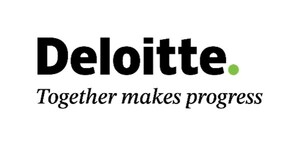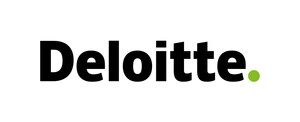
NEW YORK, Nov. 9, 2020 /PRNewswire/ --
Key takeaways
- More than 60% of life sciences companies say they spent over $20 million on AI initiatives last year, and more than half expect investments to increase this year.
- Enhancing existing products and creating new products and services are the top two outcomes life sciences organizations hope to achieve as a result of further investment in AI.
- Difficulty in identifying the AI business cases with the highest value was reported as the top implementation concern.
Key quote
"The life sciences industry has only begun to scratch the surface of AI's potential but the good news is biopharma and life sciences leaders see the potential and are willing to make the investments necessary to realize what's possible. They should be cautious, though, and carefully plan and strategize so those investments are used wisely and result in the desired outcomes. By spending time on a solid strategy, putting the building blocks in place for success and leveraging relationships with relevant partners, AI can help transform the life sciences industry as we know it and get the necessary products to market more quickly."
- Aditya Kudumala, principal, Deloitte Consulting LLP
Why this matters
From R&D to manufacturing, supply chain to commercial functions, AI is beginning to have an impact on increasing efficiencies across the biopharma value chain, especially as a result of the COVID-19 pandemic. In addition, increased remote work environments helped life sciences leaders realize how effective digital solutions can be in helping their businesses run smoothly, transforming mindsets and enabling executives to lean into a future grounded in digitization, data and AI. While today AI is primarily applied to automate existing processes, additional potential lies in accelerating insights and discovery to expedite access to new therapies and products. AI's potential stretches across the value chain from identifying and validating genetic targets for drug development, designing novel compounds, expediting drug development, making supply chains smarter and more responsive, to helping launch and market products. Life sciences companies that deploy AI strategically across the entire enterprise will likely be best positioned to maximize their AI investments and achieve a competitive edge.
"Deloitte's 2020 State of AI in the Enterprise Study, 3rd Edition" by the Deloitte AI Institute and Center for Technology, Media and Telecommunications, uncovered how organizations are adopting, benefiting from, and managing AI technologies by industry, including life sciences. While the "State of AI in the Enterprise" survey was conducted before COVID-19 significantly impacted the U.S., its findings are ever more relevant as life sciences companies look to reduce costs, increase product development and better engage with ecosystem partners in the "Age of With," a world where humans work alongside machines to enable greater outcomes. The "Scaling up AI across the life science value chain: Enhancing R&D, creating efficiencies and increasing impact" report, launched today, summarizes key findings from that survey, and offers recommendations for how life sciences companies can gain immediate returns on investment and experience a competitive advantage over the longer term.
Investing in AI
Biopharma and medtech leaders surveyed agree that life sciences organizations are investing in AI, but "how" they're investing varies widely. When asked about their company's investments in AI projects and technologies in the past year:
- Forty-one percent invested $20-50 million; followed by 26% that invested $10-20 million; and 21% that invested more than $50 million in AI initiatives.
- More than half of survey respondents expect investments in AI will continue to increase throughout 2020 as AI moves from tactical improvements in efficiency to larger-scale, organization-wide projects.
- Forty-six percent of respondents said it takes longer than expected to receive payback from investments in AI initiatives.
Enhanced efficiency
When it comes to the top outcomes life sciences companies hope to achieve by using AI, three primary objectives emerged:
- Enhance existing products (28%)
- Create new products and services (27%)
- Make processes more efficient (22%)
The top three outcomes where respondents said they've seen the most success with AI include:
- Making processes more efficient (43%)
- Improving decision making (41%)
- Enhancing existing products and enabling new business models (both 40%)
Understanding risks
As with any new technology, survey respondents pointed to multiple challenges associated with AI implementation, including poor-quality data, siloed data systems, integrating AI into legacy systems and risk management. The top challenges life sciences companies cited when implementing AI were:
- Identifying use cases with the greatest business value (30%)
- Integrating AI into the organization (28%)
- Data challenges (28%)
- Challenges implementing AI technologies (28%)
Moving AI forward
In order to take AI to the next level, Deloitte recommends life sciences leaders consider the following three step process:
- First, company leaders should define their vision and strategy for how they want to take advantage of AI and what they seek to achieve from their investments in data, analytics and AI.
- To carry out that strategy, companies should then assemble the building blocks to help set themselves up towards success. The core building blocks Deloitte advises leaders to consider include: technology and data, technology architecture, ecosystems and alliances, talent and aligning on risk management.
- Third, leaders should evaluate ways to scale up internal investments or partnerships that can help their companies go from short-term to longer-term success in the market.
For more information on the "Scaling up AI across the life science value chain: Enhancing R&D, creating efficiencies, and increasing impact" report visit Deloitte Insights.
Connect with us on Twitter at @DeloitteHealth.
About Deloitte
Deloitte provides industry-leading audit, consulting, tax and advisory services to many of the world's most admired brands, including nearly 90% of the Fortune 500® and more than 7,000 private companies. Our people come together for the greater good and work across the industry sectors that drive and shape today's marketplace — delivering measurable and lasting results that help reinforce public trust in our capital markets, inspire clients to see challenges as opportunities to transform and thrive, and help lead the way toward a stronger economy and a healthier society. Deloitte is proud to be part of the largest global professional services network serving our clients in the markets that are most important to them. Now celebrating 175 years of service, our network of member firms spans more than 150 countries and territories. Learn how Deloitte's more than 330,000 people worldwide connect for impact at www.deloitte.com.
Deloitte refers to one or more of Deloitte Touche Tohmatsu Limited, a UK private company limited by guarantee ("DTTL"), its network of member firms, and their related entities. DTTL and each of its member firms are legally separate and independent entities. DTTL (also referred to as "Deloitte Global") does not provide services to clients. In the United States, Deloitte refers to one or more of the US member firms of DTTL, their related entities that operate using the "Deloitte" name in the United States and their respective affiliates. Certain services may not be available to attest clients under the rules and regulations of public accounting. Please see www.deloitte.com/about to learn more about our global network of member firms.
SOURCE Deloitte







Share this article